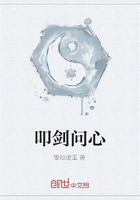Paris itself not excepted, and that his Catholic Majesty would also, without delay, send his deputies thither to meet and treat with them;that, meanwhile, he had ordered 18,000 men to march towards their frontiers to relieve them in case of need, with orders nevertheless to commit no hostilities upon the towns, etc., of the most Christian King, though they were for the most part abandoned; and it being his resolution at this juncture to show his sincere inclination for peace, he gave them his word of honour that his armies should not stir during the treaty; but that in case his troops might be serviceable to the Parliament, they were at their disposal, to be commanded by French officers; and that to obviate all the reasonable jealousies generally, attending the conduct of foreigners, they, were at liberty to take all other precautions they should think proper.
Before his admission the Prdsident de Mesmes had loaded me with invectives, for secretly corresponding with the enemies of the State, for favouring his admission, and for opposing that of my sovereign's herald.
I had observed that when the objections against a man are capable of ****** greater impression than his answers, it is his best course to say but little, and that he may talk as much as he pleases when he thinks his answers of greater force than the objections. I kept strictly to this rule, for though the said President artfully pointed his satire at me, I sat unconcerned till I found the Parliament was charmed with what the envoy had said, and then, in my turn, I was even with the President by telling him in short that my respect for the Parliament had obliged me to put up with his sarcasms, which I had hitherto endured; and that I did not suppose he meant that his sentiments should always be a law to the Parliament; that nobody there had a greater esteem for him, with which Ihoped that the innocent ******* I had taken to speak my mind was not inconsistent; that as to the non-admission of the herald, had it not been for the motion made by M. Broussel, I should have fallen into the snare through overcredulity, and have given my vote for that which might perhaps have ended in the destruction of the city, and involved myself in what has since fully proved to be a crime by the Queen's late solemn approbation of the contrary conduct; and that, as to the envoy, I was silent till I saw most of them were for giving him audience, when Ithought it better to vote the same way than vainly to contest it.
This modest and submissive answer of mine to all the scurrilities heaped upon me for a fortnight together by the First President and the President de Mesmes had an excellent effect upon the members, and obliterated for a long time the suspicion that I aimed to govern them by my cabals. The President de Mesmes would have replied, but his words were drowned in the general clamour. The clock struck five; none had dined, and many had not broken their fast, which the Presidents had, and therefore had the advantage in disputation.
The decree ordering the admission of the Spanish envoy to audience directed that a copy of what he said in Parliament, signed with his own hand, should be demanded of him, to the end that it might be registered, and that, by a solemn deputation, it should be sent to the Queen, with an assurance of the fidelity of the Parliament, beseeching her at the same time to withdraw her troops from the neighbourhood of Paris and restore peace to her people. It being now very late, and the members very hungry,--circumstances that have greater influence than can be imagined in debates, they were upon the point of letting this clause pass for want of due attention. The President Le Coigneux was the first that discovered the grand mistake, and, addressing himself to a great many councillors, who were rising up, said, "Gentlemen, pray take your places again, for I have something to offer to the House which is of the highest importance to all Europe." When they had taken their places he spoke as follows:















